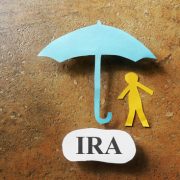Advantages and Disadvantages to Private Notes in SDIRAs
Loaning money may not sound like the typical retirement investment, but with a Self-Directed IRA, your options remain open. Among the various alternative investments available within Self-Directed IRAs, private notes can potentially generate income and secure investments in an inflationary environment. But what are the risks and potential rewards to this style of investing? Let’s explore.
Advantages of Private Notes in Self-Directed IRAs
A private note can potentially generate consistent, high-quality returns without doing much but making the right investment decisions from your Self-Directed IRA. They’re a mostly passive means of building wealth, which is great for anyone who has capital to put to use. Let’s explore some advantages which explain why you might consider investing in private notes through a Self-Directed IRA:
Private notes, often in the form of promissory notes or loans, can offer attractive interest rates compared to traditional fixed-income investments. This potential for higher returns can be appealing to Self-Directed IRA investors looking to grow their retirement savings.
- Holding a private note within your Self-Directed IRA provides diversification, reducing your portfolio’s reliance on traditional assets. This diversification can help spread risk and enhance the overall stability of your retirement investments.
- A private note can generate a steady stream of passive income in the form of interest payments from borrowers. You can reinvest this income or use it later in life to supplement your retirement income.
- Self-Directed IRAs grant you the flexibility to choose the terms of your private notes, such as interest rates, repayment schedules, and collateral requirements. This flexibility allows you to tailor private notes to your risk tolerance and financial goals.
Disadvantages of a Private Note in a Self-Directed IRA
Like any legitimate investment, there’s always the possibility that private notes don’t perform well. Let’s explore the risks:
- One of the primary risks associated with private notes is the potential for borrower defaults. If the borrower fails to repay the loan, your Self-Directed IRA may experience a loss, impacting your retirement savings.
- Unlike publicly traded investments, private notes can be illiquid. If you need to access funds in your Self-Directed IRA quickly, selling a private note may not be as straightforward as selling stocks or bonds.
- Assessing the creditworthiness of borrowers and conducting thorough due diligence on potential private note investments is crucial. Without proper research, you may inadvertently invest in high-risk notes without knowing they are high-risk notes.
- Holding private notes in a Self-Directed IRA requires compliance with IRS regulations. Engaging in prohibited transactions or failing to adhere to IRS guidelines can result in penalties and potential disqualification of your Self-Directed IRA.
Risk Mitigation Strategies
To mitigate the disadvantages associated with private notes in Self-Directed IRAs, consider the following strategies:
- Don’t put all your Self-Directed IRA funds into a single private note. Consider diversifying your your investments across various asset classes to spread risk.
- Conduct thorough due diligence on potential borrowers and investment opportunities. Consider working with a financial advisor or professional experienced in private note investments.
- Guidance from a professional: Seek advice from Self-Directed IRA custodians like American IRA, who can help you navigate IRS regulations and ensure compliance.
- Assess your risk tolerance carefully. Don’t invest in private notes that exceed your comfort level in terms of risk.
Interested in learning more about Self-Directed IRAs? Contact American IRA, LLC at 866-7500-IRA (472) for a free consultation. Download our free guides or visit us online at www.AmericanIRA.com.






